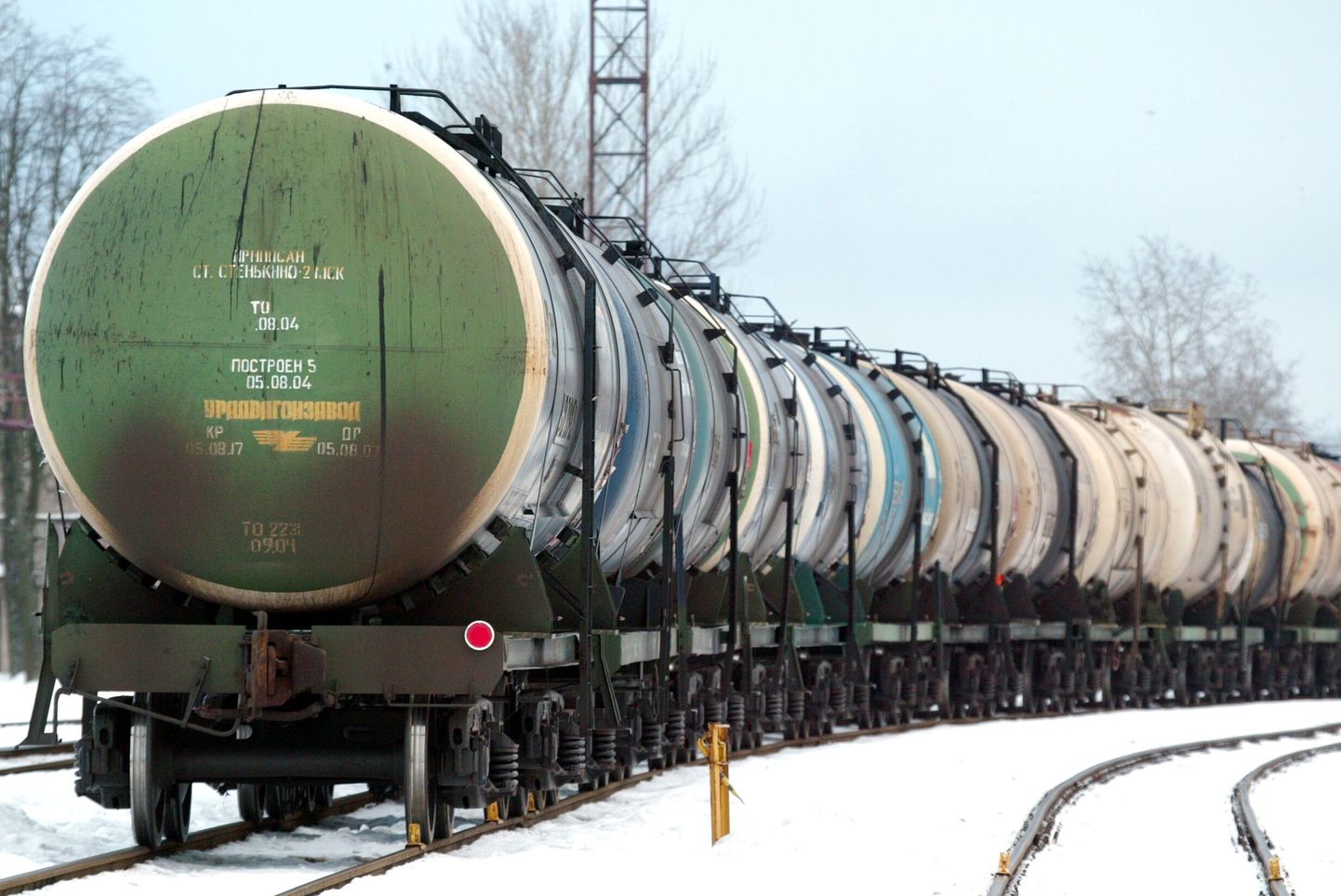
In January, carriage of goods on railway dropped to Bronze Night times level, largely due to lowest volume of oil carried in years.

In January, carriage of goods on railway dropped to Bronze Night times level, largely due to lowest volume of oil carried in years.
For headquarters of Estonian Railways, the start-of-the-year setback came as a surprise: at the end of last year, carriage of goods was on the level of the last year but one, signs pointing towards situation staying the same in 2014.
«Usually, the winter months are the best of the year, but this really took us by surprise,» commented Ahti Asmann, CEO of Estonian Railways.
In January 1.43 million tonnes of oil products were carried on Estonian Railways’ infrastructure, a whopping 24 per cent less year-on-year. Never has Estonian Railways had such a poor «oil January». «No good news in sight, February threatens to be like January,» noted Mr Asmann.
Tariffs decide
A glance at competitors reveals that Latvian railways posted 2,7 per cent growth, for January, Lithuania’s railway suffering a 13,6 per cent drop. Total volume of Estonian Railways’ carriage of goods shrunk 19.2 per cent.
In transit circles, half jokingly Russia’s smaller oil volumes are explained by the Sochi Olympics – the entire state leadership is attending the Games, no decisions are being taken. Another reason offered is the mild winter, equalling lower demand; as well as the ice free sea – robbing our ports of an advantage.
Experts, however, still point to Russian politics as main culprit, directing oil carriages – by more advantageous tariffs – to Ust-Luga port. According to economy minister Juhan Parts, Russia should keep WTO rules i.e. tariffs favouring own ports should be a no-no.
«The issue has been raised in the European Commission, in whose domain it is to demand in WTO that Russia keep the rules,» said Mr Parts. «Till then, however, our companies must fight to be competitive.»
As stated by Alexela Grupp board member Heiti Hääl, they’ve had no cancellations with oil carriage on railway, advising rather to ask of competitors. «Well probably Russia is trying to favour its own ports, thence the drop,» thinks Mr Hääl.
By last night, major terminals Vopak and Vesta had not sent an official reply. According to Port of Tallinn representatives, they detect no big fall in carriage of goods: in January, the volumes were up 1,1 per cent to 2.79 million tonnes. Liquid trade – oil products, mainly – even grew, by 3.5 per cent. The port explained that, more and more, railway carriages are being replaced with ship-to-ship carriage i.e. smaller ships bring fuels to Estonian terminals, from ports of Riga or Russia, where it is loaded unto larger vessels.
«Indeed, a remarkable change has occurred: the railway-sea-type transport is being replaced by sea-sea-type solution, wherefore the Port of Tallinn is showing excellent results and, at the same time, the railway is doing worse,» affirmed transit expert Raivo Vare.
According to Mr Vare, such a logistical solution is supported by Russia’s state policy, which, by use of railway tariffs, is favouring its own ports. Therefore, it makes less and less business sense to pump oil products, arriving by trains, onto ships via Estonian terminals.
Ship trip cheaper
«It is cheaper to bring the fuels here, by smaller vessels, from Russia; here, they are mixed together if so needed, are storage and sent on by larger vessels,» explained Mr Vare.
According to him, the backlash has mostly come in the South i.e. no goods are passing through the Koidula border point. «The volumes ought to be bigger, to assemble long trains, as, from that direction, longer trains are favoured,» said Mr Vare.
According to Mr Asmann, Estonian Railways are still in the wait-and-see mode regarding future steps – keeping an eye on February’s results, to make further plans. «If oil products fall away, it will be difficult for us to compensate these with other bulk goods,» admitted Mr Asmann.
For instance: in January, carriage of fertilisers by railway increased 14 per cent to 0.3 million tonnes, and containers were carried 5,925 TEU i.e. 42 per cent more than last year. Even so, these sectors cannot fill the void left by oil carriages.